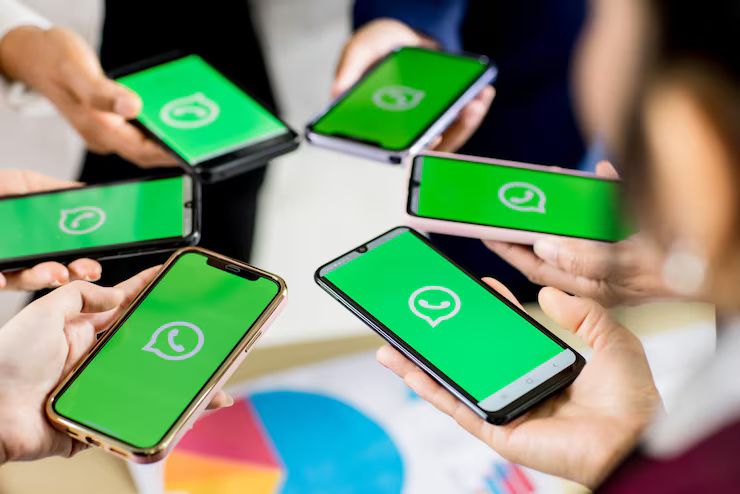WhatsApp bulk messaging refers to sending a single message to multiple recipients at once using official or unofficial messaging tools. Unlike one-on-one chats, this method helps businesses, marketers, and organizations communicate promotions, updates, and reminders to a large audience efficiently.
As WhatsApp has over 2 billion users globally, it provides an opportunity for businesses to connect with audiences on a platform they already use daily. Marketers now see WhatsApp not just as a chat tool but as a marketing channel that delivers high engagement rates—far better than traditional SMS or email.
Importance: Why WhatsApp bulk messaging matters for marketers today
Marketers are increasingly turning to WhatsApp for several key reasons:
-
Higher open and read rates – Messages on WhatsApp are typically opened within minutes.
-
Global and local reach – Businesses can reach audiences across countries without SMS costs.
-
Customer engagement – Users prefer interactive and real-time communication.
-
Cost-effective communication – Especially useful for startups and small businesses with tight budgets.
This strategy benefits:
-
E-commerce stores sending order updates
-
Event planners sharing schedules
-
Digital marketers broadcasting promotions
-
Local service providers confirming bookings
However, overuse or improper use may lead to being flagged as spam or getting banned if not following WhatsApp’s official Business Policy.
Recent Updates: Key WhatsApp business changes in the past year
As of 2024 and into 2025, several changes have impacted how marketers can use WhatsApp bulk messaging:
-
Meta’s Cloud API Expansion: Meta expanded its cloud-hosted WhatsApp Business API in more countries, making it easier for small and medium businesses to access bulk messaging tools.
-
Increased automation tools: New AI-based responses, customer segmentation, and message templates were introduced for automated messaging.
-
Updated pricing: WhatsApp now uses a conversation-based pricing model, charging businesses per 24-hour conversation window, segmented by user-initiated and business-initiated messages.
-
Green tick verification: Businesses using the official API can now apply for verified green checkmarks, boosting credibility.
Marketers are advised to use WhatsApp Business API or Meta-approved platforms (like Twilio, 360dialog, Gupshup) for bulk campaigns.
Laws or Policies: Regulatory considerations around WhatsApp marketing
Legal use of WhatsApp bulk messaging varies by country, but here are universal guidelines marketers should follow:
-
GDPR (Europe): Consent is mandatory. Users must opt-in to receive marketing messages.
-
TCPA (USA): Requires prior express written consent before sending automated messages.
-
India’s IT Act & TRAI: Encourages consent-based and spam-free messaging practices.
-
WhatsApp Business Policy: Bulk or automated messages through unofficial apps are strictly prohibited and may result in bans.
Compliance includes:
-
Allowing users to opt-out easily
-
Using pre-approved message templates
-
Avoiding spammy language or aggressive promotions
Always check your local and platform-specific laws before sending bulk messages.
Tools and Resources: Platforms and services to send bulk WhatsApp messages
Here’s a list of useful tools and services to explore WhatsApp bulk messaging for business:
| Tool/Platform | Description |
|---|---|
| Twilio | Official WhatsApp Business API provider |
| WATI | Helps SMBs automate and manage messages |
| Gupshup | Used for personalized, large-scale messaging |
| Zoko | E-commerce integration with bulk messaging |
| 360dialog | Direct integration with WhatsApp Cloud API |
| Yellow.ai | AI chat automation and bulk message flows |
| Wablas | Regional platform (popular in Southeast Asia) |
| WhatsApp Business App | Limited free version for manual bulk messaging |
Most of these tools require message template approval from WhatsApp and user opt-in lists.
FAQs
What is the difference between WhatsApp Business App and Business API?
The Business App is designed for small businesses and has limited messaging. The API allows for automated and bulk messaging and is intended for medium to large enterprises.
Can I use WhatsApp Web or desktop to send bulk messages?
No. Bulk messaging through WhatsApp Web or desktop may violate WhatsApp’s policy. Use API-based tools to stay compliant.
Is WhatsApp marketing legal?
Yes, but only if users have opted in. Sending unsolicited messages can lead to account bans or legal penalties depending on your country.
How can I get user consent for WhatsApp marketing?
Include an opt-in checkbox during website sign-ups, or ask customers directly through your app, SMS, or email with clear messaging and opt-out options.
What types of messages perform best on WhatsApp?
Short, clear, and interactive messages with quick responses or offers. Examples include order updates, limited-time discounts, reminders, and personalized messages.
Final thoughts
WhatsApp bulk messaging is a powerful communication tool when used responsibly. Marketers can significantly expand their reach, build engagement, and drive conversions by using the right tools, following WhatsApp’s guidelines, and respecting user privacy. With high open rates and real-time engagement, it’s one of the most efficient messaging platforms today—provided businesses use it ethically and effectively.
